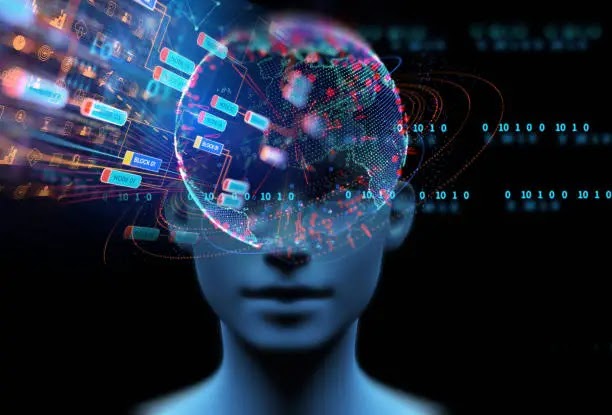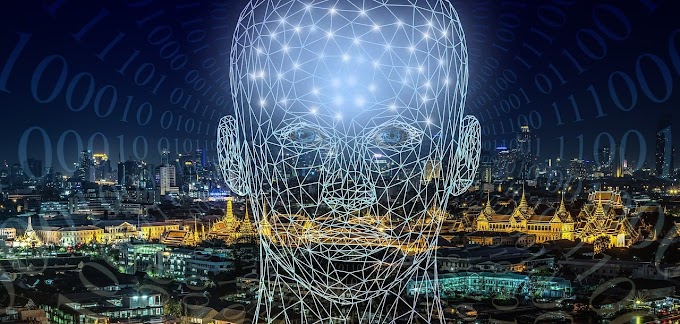Can AI Predict the Future?
Artificial Intelligence (AI) has rapidly advanced in recent years, leading us to wonder: Can AI predict the future? This article delves into the fascinating world of AI's predictive capabilities, exploring its evolution, technology, real-world applications, ethical considerations, and the synergy between AI and human intuition.
The Evolution of AI in Predicting the Future
To understand AI's predictive prowess, we must first look back. AI's roots in predicting the future can be traced to early machine learning algorithms. Over time, it has evolved from basic statistical modeling to sophisticated deep learning techniques. These advancements have empowered AI to process vast datasets and identify hidden patterns, laying the foundation for its predictive abilities.
Understanding AI's Role in Shaping Tomorrow
AI isn't a mere bystander in the journey of shaping our future; it actively influences it. From personalized recommendations in streaming services to autonomous vehicles and climate change modeling, AI is a pivotal force driving innovation and change across diverse domains. It's not merely predicting outcomes; it's participating in the decision-making processes.
AI's Crystal Ball: The Science Behind Predictive Algorithms
The heart of AI's future prediction lies in its predictive algorithms. Machine learning models, including neural networks and deep learning, play a key role. These algorithms analyze historical data, recognize patterns, and extrapolate trends into the future. Techniques such as natural language processing and computer vision also enable AI to interpret complex information.
Accuracy and Reliability: Assessing AI's Predictive Abilities
AI's predictive prowess isn't without its limits. While it excels in some areas, its reliability varies. Success rates can be impressive in scenarios with well-defined patterns, but unpredictable events or outlier data can challenge its accuracy. Understanding these limitations is vital when evaluating AI's predictions.
Applications of AI Future Prediction in Different Industries
AI's predictive capabilities have found applications in numerous industries. In healthcare, AI forecasts disease outbreaks and patient outcomes. Businesses leverage AI for market trends and financial forecasting. Government agencies utilize it for urban planning and disaster response. These real-world use cases highlight AI's practical value in shaping the future.
Ethical Implications: AI's Role in Decision-Making
The rise of AI in predictive analysis raises ethical questions. Relying solely on AI for decision-making may lead to unintended consequences and bias. Striking the right balance between human judgment and AI predictions is crucial, ensuring fairness, accountability, and transparency in the decision-making process.
The Human Touch: Balancing AI and Human Intuition in Prediction
AI excels at crunching data, while human intuition offers context and empathy. The fusion of AI's analytical power with human expertise provides a more holistic approach to predicting the future. Collaborative efforts between humans and AI create a stronger foundation for informed decision-making.
The Road Ahead: Advancements and Challenges in AI Future Prediction
The future of AI prediction is exciting, but it comes with its share of challenges. Advancements in AI technology, including quantum computing and better data accessibility, promise greater accuracy and expanded applications. However, challenges such as data privacy, security, and ethical concerns must be addressed.
Case Studies: AI's Remarkable Success Stories in Prediction
AI has achieved remarkable success stories in prediction. From Google's flu trend forecasting to predictive policing, AI has demonstrated its ability to foresee events and trends accurately. These case studies showcase the transformative potential of AI in different domains.
Guidelines for Leveraging AI Predictions in Your Decision-Making
For individuals and businesses looking to harness AI predictions, a set of guidelines is essential. This includes understanding the context, interpreting AI output, validating predictions, and involving human judgment in critical decisions. With these guidelines, AI can be a valuable tool for better decision-making.
In conclusion, the capabilities of AI in predicting the future are expanding rapidly, offering promising opportunities and challenges. Understanding the technology, limitations, ethical considerations, and the collaborative potential between AI and human intuition is key to unlocking the mysteries of AI's future prediction and using it wisely in various aspects of life and business.







